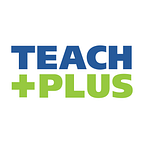Why Social Emotional Learning Should Be a Right, Not a Privilege
By Loed Lacayo
At 6 years old, after witnessing my father being beaten by soldiers in our hometown of Managua, Nicaragua, I was separated from my parents and sent with my sister to live in California. I had seen a war blow up and I was scared. I saw things that a 6-year-old should never have to see. Like so many children who experience trauma, I shut down. I hated California. Luckily, I met someone who changed the trajectory of my life: my teacher, Ms. Temple.
After my third meltdown in her class, Ms. Temple started to take me on walks with her during recess to ensure that I would be OK returning to the classroom. On our walks, she talked to me about my actions, reactions, and feelings. We meditated a lot. She was my emotional coach. My first birthday in America was lonely; Ms. Temple gave me a notebook and taught me to write out my feelings. She recognized that I couldn’t learn without feeling cared for and safe. After my parents finally came to America, Ms. Temple worked with them and coached them on how to deal with my trauma. My dad meditated with me and it was my favorite 30 minutes of the day. It was with Ms. Temple’s guidance, patience, discipline, and love that I was able to survive and even thrive.
I believe that all students need teachers like Ms. Temple who see their social and emotional needs and have strategies to support them. In my classroom, for the past 20 years, I have incorporated techniques like those Ms. Temple used with me to help students with their social emotional needs. These strategies have made it possible for me to help many children.
While COVID-19 has not fired a shot, it is still leaving many children without families. Even after Noemi’s family finally found housing, her mother, who watched over her in their small two-person tent, couldn’t fight off the coronavirus. Years of living on the street and passing her daughter from relative to relative took too much of a toll on her frail body. Noemi finally found some stability then lost it again to this silent killer. Now more than ever, students need support not just at school but during distance learning.
As teachers, one of our best partners are parents, who are at home during this crisis and want and need help. Teachers like me can address students’ social emotional needs while reaching out to parents. Providing parents with training on techniques that they can incorporate at home helps to ensure their students are better adjusted. In my own school, we have organized parent workshops on how to plan a day to support students during COVID-19 and how to create a balanced daily schedule. I am developing an online interactive journal to guide students during the shutdown, using the same strategies that I’ve used over the years in my physical classroom. I’ve introduced parents to techniques such as breathing, meditation, and yoga and to resources like GoNoodle and Cosmic Yoga. When using these resources, I’m reminded of my walks and meditation with Ms. Temple.
With COVID-19, we risk a lost generation. We are at risk of students not just losing academic ground but also the skills and tools they need to be productive citizens of our society. As a child hiding in Managua, separated from family, friends, or any other support, I was lost. When I came to America, I regained some stability with the help of my teacher. I understand the need to reach students before it is too late. We all need to act now before this truly becomes the lost generation.
Loed Lacayo is an intervention coordinator and peer coach at 99th St. Elementary School in South Central Los Angeles. She is a 2019–20 Teach Plus California Policy Fellow.
